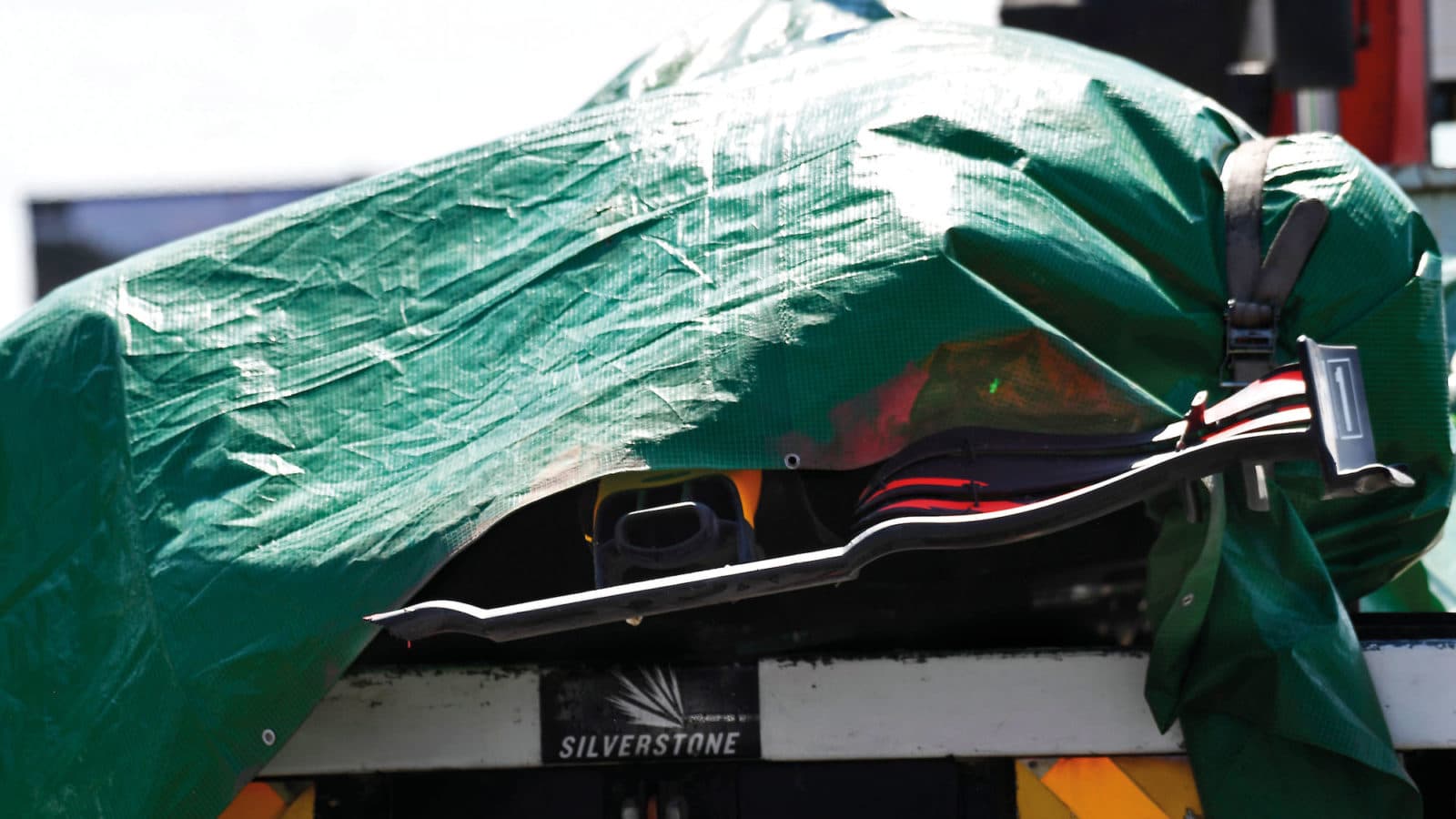The cost of crashing in modern F1
While prangs wreaked havoc, Formula 1’s team principals reached for their calculators and vented their anger

Max verstappen's Red Bull is said to have sustained £1.3m-worth of damage at Silverstone
Grand Prix hoto
The car-damaging incidents at the two successive rounds of the Formula 1 championship, Silverstone and the Hungaroring, put damage costs very much in the news in this era of F1 cost caps. Any money spent on damage repairs is money not spent on improving the car. For many teams, this has always been the case. But in the past accident damage made no dent on the development programmes for the top teams. That’s no longer the case and, as such, it’s become a controversy.
Red Bull was particularly hard hit, with Verstappen’s 5g impact with the Copse Corner barriers at Silverstone – after tangling with Lewis Hamilton – costing what team principal Christian Horner reckons was £1.3m-worth of damage (top of page). The team then suffered a further heavy damage bill to both its cars in Hungary, triggered by a first corner error from Mercedes’ Valtteri Bottas. At both races there was also accident damage to Honda power units, which may have turned out to be terminal, potentially triggering penalties later in the season.
“It’s hugely frustrating for Honda as it’s not due to reliability,” said Horner, “it’s because of accidents that we haven’t caused. So they’re feeling the brunt of this as well as we are on the chassis side. It’s not to be underestimated on the cost cap side. It’s something that does need to be looked at because in a cost cap environment, it’s brutal… I think we need to revisit this with the FIA as it’s something that can affect all teams, not just Red Bull.”
He was backed up in this by Ferrari’s Mattia Binotto, speaking after Charles Leclerc was taken out – also at the likely cost of a power unit – by Lance
Stroll in Hungary. “Our damages for the half- season are €2.5m [£2.1m],” he said. “Some of that we have done ourselves. But if there is a guilty driver, should the cost of that accident be exempt from budget cap? It’s an important point, though it may be difficult to police.”
Smaller teams aren’t sympathetic to that cause. McLaren’s Andreas Seidl, for one. “In the end, it’s part of the game we’re in – it’s down to us to manage the budget we have. I don’t see that it affects anything of our plans. It is quite simple and straightforward. At the beginning of the season, based on the experience of previous years, you simply have to account for certain crash damage per year. It’s the same for everyone.”
“I think we need to just be able to live with it,” said Haas’ Guenther Steiner. “We need to budget for it and be flexible enough; that’s just good management. If all of a sudden we have less crashes, do we bring the budget cap down again? It’s all just a part of racing.”

